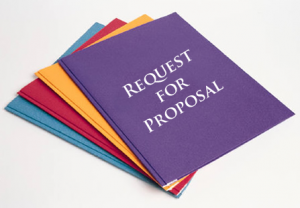 The subject of RFPs has been discussed
on this blog before. Everything from how much time we spend on them to
whether or not we should respond in the first
place.
The subject of RFPs has been discussed
on this blog before. Everything from how much time we spend on them to
whether or not we should respond in the first
place.
At Counselors Academy’s spring conference, there was a session on best practices for responding to RFPs. The session was led by Steve Drake and Robert Udowitz of RFP Associates, a communications agency search firm that improves the method of identifying, evaluating and hiring an agency. They work directly with the hiring entities.
The session was part therapy and part informational, as we all had some things to share about our frustrations with the process. A few that were mentioned:
- No budget identified
- Asks for spec work
- Is wired for the incumbent
- Won’t share who else received the request
- “One-inch margins, 12-point type, three-ring binder” type requirements having nothing to do with the ability to do the work
Coming from the perspective of the hiring entity, Steve and Robert offered some words of wisdom:
- Evaluate your response readiness. Take a look at your track record, have you been successful before. If not, do you know why and have you addressed those reasons. Can you really do the scope of work for the budget (let’s assume there is one). My view – don’t just respond simply to respond, these take a long time and you really need to know whether it is the right fit and the right time for your agency.
- Strategies for long-term success. What are you doing now to position yourself to be the one to be selected. My view — This likely applies more to private-sector RFPs, but what are you doing to leverage your assets like your agency blog (thought-leadership), speaking engagements, award-competitions, etc. to showcase your talent and provide content for your response.
- Prepare a winning proposal. Give it all you’ve got, no detail is too small and don’t provide the cookie-cutter response. Really customize to the client’s needs. My view – this is more difficult to do in the public-sector world, but there is no reason why you can’t demonstrate and highlight your expertise, within the parameters given.
- Present with confidence. If you get called in for a presentation, bring your A-game. Make sure everyone on the presentation team is engaged in the conversation. My view – practice the presentation AND the possible q/a. Make sure everyone is prepared to answer questions, not just the senior team.
I’m sure Scott and I will continue to discuss the RFP process and when responding makes the most sense. For now, I must find that three-ring binder….


